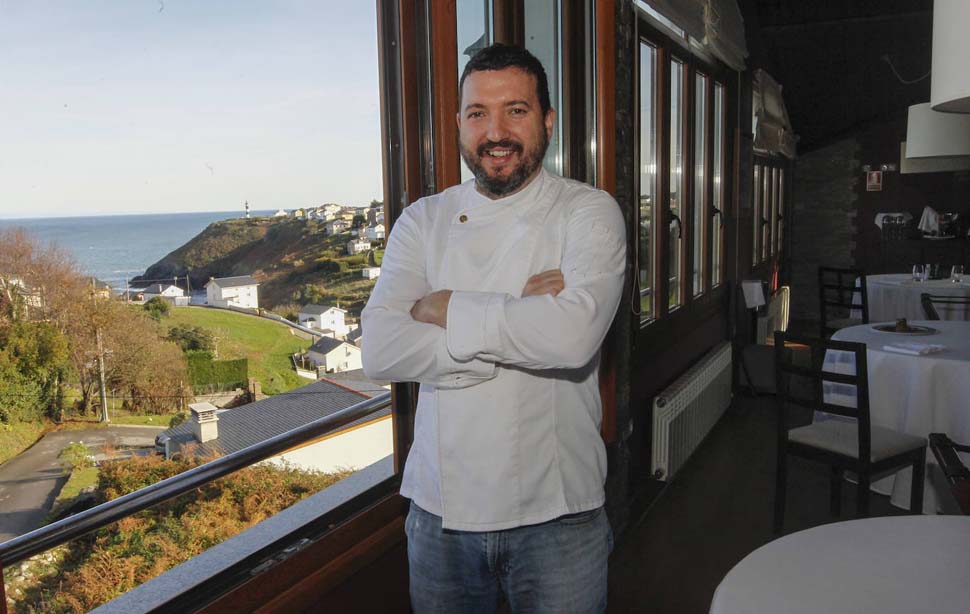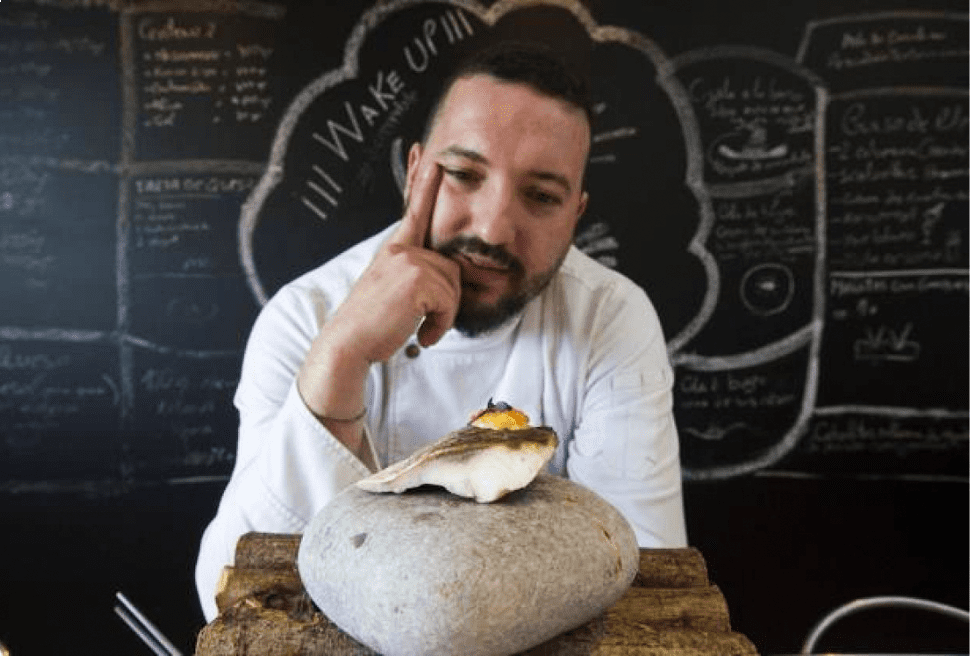In his family's trattoria, he has carved out a Michelin-Starred restaurant faithful to its origins, which now complements a contaminated cuisine cooking space, a store, and a charcuterie workshop. "The rural world is the future," says the Asturian chef. "The province is where you produce; there is a lack of support and employment, but I believe it will come."
Elio Fernandez Articles
His was Asturias' 10th star. "A recognition that means more work, more recognition, more bookings, more staff, more quality in service and a lot of personal excitement," comments Elio Fernandez, chef at Ferpel restaurant in Coaña. "Expectations are growing. In a good restaurant, they are almost always met. But in a starred one, they are very high. Now that we have 1 Star, we have to work as if we are aiming for the second, so that we keep the first one always high."

A child of art, Elio Fernandez grew up in his parents' popular trattoria, never doubting that continuity with the past was the way. After his studies, he completed his experiences in Spain and Switzerland, before returning home and starting to help again. Initially on his tiptoe, then bringing his own contemporary and signature vision, which, however, continues to be inspired by tradition and the countryside. "The rural world is the future," he claims. "I love grandma's cooking, soups, fava beans, lentils, chorizo eggs with potatoes, and lots of bread."

In fact, despite his young age, Fernandez seems to reason out of time compared to many of his peers. "My cuisine is humble, plural and innovative. I always say that we must elevate the poor products we have around us to the sky. That's what makes a cook great. If you use caviar, a shrimp from Denia or Galician percebes, they speak for themselves. These are products that don't give you any problems if they are well cooked. But surprising with a simple ingredient is more complicated. It's not impossible nor difficult, but it takes creativity."

"Young chefs who come to practice say they expected a much 'harder' cuisine. They see movies where haute cuisine is very complicated and dictatorial, according to which we are always applying spherification or holding liquid nitrogen. But that's not the case; it's all much simpler. The basis of all good cooking, in the end, is the casserole. Whether you have good lentils or a three Michelin star spherification of lentils, the basis in the end is the same. Simmering is the most important thing, however much it may precede other haute cuisine or more expensive techniques. We don't do anything else, for example we make a chicken stock with another chicken stock and get to a third one with leftovers. It means concentrating the flavor and extracting all you can from bones, trimmings, and fat. You must lighten, but not completely, otherwise we would get 'washed' broths like the ones we used to make in the old days, when the meat was scarse and bones would be cooked twice to make the soup."

After the covid-19 pandemic, having a Michelin star paradoxically slowed down plans. Loloka, the second restaurant and venue of contaminated cuisine, from tacos to bao to pizza, housed in the grandparents' house, is going strong, yet lacks staff. Then there is the gourmet store with wines, cheeses and jarred dishes and the charcuterie workshop. "We'd like to open a third place, but we'll wait for this year, because after the Michelin star the work and advertising campaign are taking up a lot of our time."
Source: 65ymas.com
Cover photo: @El Comercio











